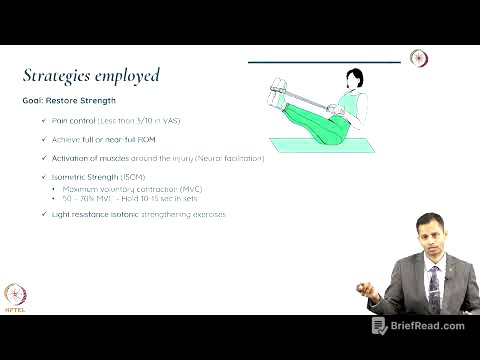TLDR;
This video explores the Divine and Demonic qualities as described in Chapter 16 of the Bhagavad Gita, offering a guide for self-assessment and spiritual growth. It details the attributes that elevate the mind and lead towards God versus those that depress the mind and lead away from spiritual progress. The discussion emphasizes cultivating Divine qualities to enhance spiritual life and make better choices, contrasting them with Demonic qualities that bind one to meaningless pursuits.
- Divine qualities elevate the mind and lead towards God, fostering spiritual growth.
- Demonic qualities depress the mind, binding individuals to meaningless pursuits and hindering spiritual progress.
- Cultivating Divine attributes enhances awareness and facilitates better life choices.
Introduction [0:01]
The video introduces a study of the Divine and Demonic qualities as described in Chapter 16 of the Bhagavad Gita. It addresses the fundamental question of what attributes lead towards God and what attributes lead away, providing a framework for self-assessment. The goal is to understand which qualities elevate the human mind and which depress it, as both are detailed in the Bhagavad Gita.
Divine Attributes: Part 1 [1:06]
Lord Krishna begins by describing the nature of divine attributes to Arjun, starting with fearlessness (abhayam). Other divine attributes include purity of heart and intellect (satwa samsuddhi), an inclination towards knowledge (nyana yoga), charitable nature (danam), self-control (dhamma), sacrifice (yagnya), love for studying scriptures (swadhyaya), and uprightness. These qualities collectively contribute to a balanced and harmonious system.
Divine Attributes: Part 2 [2:50]
The discussion continues with more Divine attributes, emphasizing non-violence (ahimsa) which includes kindness and compassion. Commitment to truth in thought, word, and deed (satyam), absence of anger, freedom from slander, negativity, and critical attitudes are also highlighted. A non-covetous nature is identified as beneficial for spiritual practice (sadhana), along with gentleness, meekness, modesty (hrih), and calmness.
Divine Attributes: Part 3 [5:26]
Further Divine attributes include controlled energy (Teja), which allows for significant accomplishments, and forgiveness (Shama), which involves holding no resentments. The importance of accepting others and maintaining a calm, composed mind under all circumstances is stressed. An all-powerful will (dhriti) committed to one's विवेक, purity in thought, word, and action (shoutam), absence of hate (adroho), and lack of ego or conceit (nathi Manita) are also essential Divine qualities.
The Significance of Divine Attributes [8:31]
The importance of self-assessment regarding Divine attributes is emphasized, noting that techniques exist to cultivate these qualities if lacking. Developing these attributes is crucial, especially if one's mind is naturally rajasik and tamasik, as it facilitates progress in spiritual life. The list of Divine attributes serves as a guide for personal development and spiritual advancement.
Demonic Qualities [9:06]
The discussion shifts to the qualities of the Demonic mind, which lead away from God. These include hypocrisy, arrogance, excessive ego, judging everything by personal pleasure, self-conceit, rudeness, and harshness. Such individuals are often ignorant by nature, and these qualities (asuri sampath) bind the soul, hindering spiritual progress.
Divine vs. Demonic: Impact on Spiritual Progress [10:24]
Lord Krishna explains that Divine qualities lead to liberation and progress towards God, while Demonic qualities bind individuals to the material world and meaningless pursuits. Cultivating Divine qualities is essential for spiritual evolution, enhancing awareness and enabling better life choices. Disciplines and codes of conduct are designed to foster these Divine attributes, supporting a higher quality of life.
Conclusion [11:44]
The video concludes by reiterating the importance of understanding the Divine (daivi) and Demonic (asuri) qualities described in the Bhagavad Gita. Consciously cultivating Divine qualities is crucial, as these will manifest in one's life, guiding individuals towards spiritual growth and a more meaningful existence.









